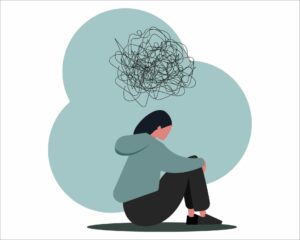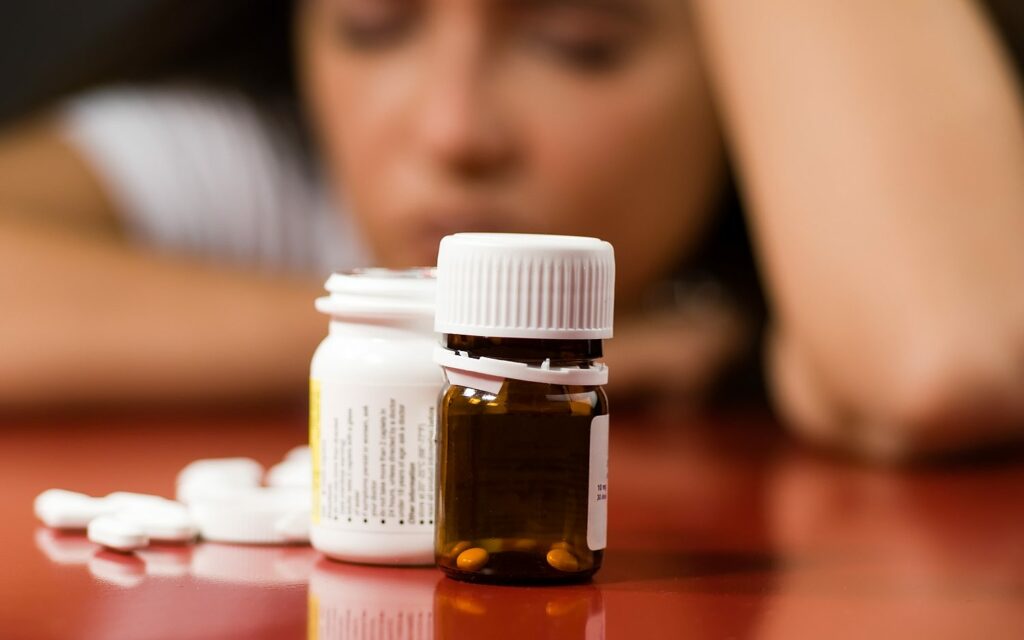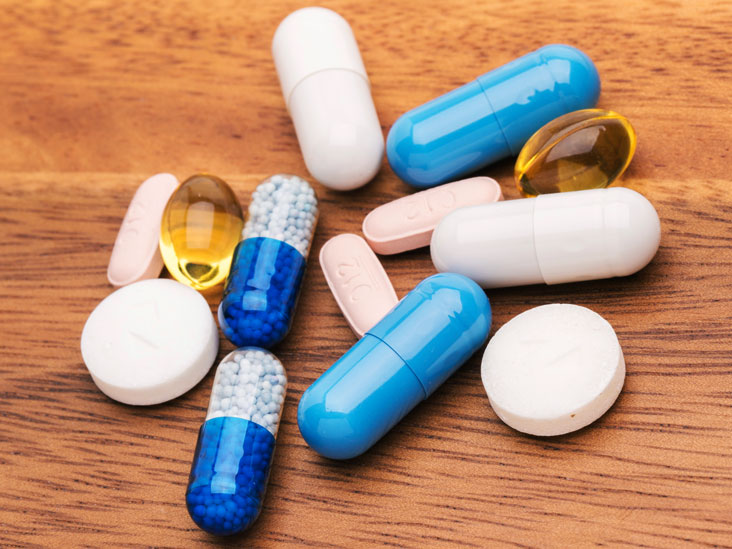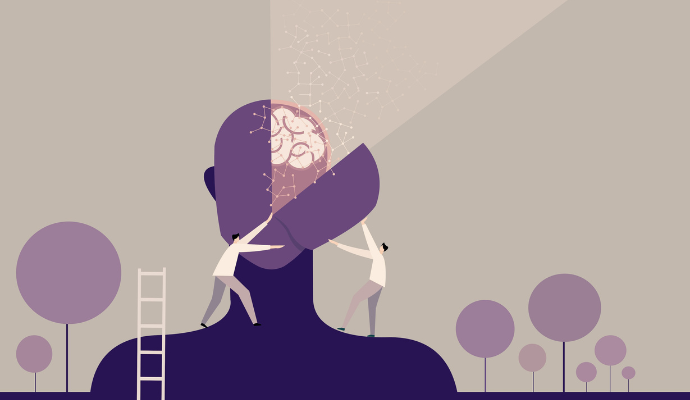Millions of people suffer from depression every year, and the cause is still unknown to scientists. However, there is one theory that may hold the answer to this age-old question: serotonin. Serotonin is a hormone that is responsible for mood regulation, and some scientists believe that it may be the root cause of depression in some people. In this blog post, we will discuss the role of serotonin in depression and how you can increase your levels of this important hormone.
Contents
What Is Depression?

Depression is a mental illness characterized by persistent sadness and loss of interest in activities that once brought joy. It may also include low self-esteem, insomnia, and fatigue. Depression is not a passing mood, it is a serious medical condition that requires treatment by a professional.
There are many potential signs of depression. Some people may experience only a few, while others may experience many. The most common signs include:
- Persistent sadness or empty mood
- Loss of interest in activities that were once enjoyed
- Irritability, anxiety, or restlessness
- Fatigue or decreased energy
- Insomnia or sleeping too much
- Changes in appetite or weightFeelings of worthlessness or guilt
- Difficulty concentrating or making decisions
- Recurrent thoughts of death or suicide
What Is Serotonin?
Serotonin is a hormone and neurotransmitter that is produced in the brain and gut. It plays a role in mood, appetite, sleep, memory, and learning. Low levels of serotonin are associated with depression, anxiety, and obsessive-compulsive disorder (OCD).
Serotonin is produced by a class of neurons called serotonergic neurons. These neurons are found in several areas of the brain, including the raphe nuclei in the brainstem and the cerebral cortex.
The raphe nuclei are responsible for regulating many important functions, including sleep, mood, anxiety, and appetite. The cerebral cortex is responsible for higher-order functions like learning and memory. Serotonin is essential for proper brain function. However, too much or too little serotonin can lead to problems.
Relationship Between Serotonin And Depression

The relationship between serotonin and depression is complex. Serotonin is thought to play a role in the development of depression, but it is not clear how.
It is believed that serotonin levels may be linked to the severity of symptoms and the chances of recovery from depression. Low levels of serotonin are associated with more severe symptoms and a less favorable outlook.
According to some reports, up to 80% of people with depression have low levels of serotonin. This does not necessarily mean that serotonin deficiency is the cause of their depression. It is possible that other factors, such as stress or genetic predisposition, may contribute to both low serotonin levels and depression.
Sometimes, low serotonin levels may be a result of depression, rather than the cause. Depression can lead to changes in eating and sleeping habits, which can affect serotonin production.
There may be a genetic predisposition to having a serotonin imbalance, which can lead to depression. Research suggests that people with a family history of depression are more likely to have a serotonin imbalance.
How Does Serotonin Affect Depression?
Depression is thought to be caused by an imbalance of serotonin in the brain. Serotonin levels can be affected by stress, diet, exercise, medications, and other factors.
The impacts of serotonin on depression are not fully understood. It is thought that serotonin may play a role in regulating mood, sleep, appetite, and stress. Low levels of serotonin may lead to changes in these areas that can trigger depression.
For example, low serotonin levels may cause insomnia, which can lead to fatigue and irritability. This can then cause a loss of interest in activities that were once enjoyed and a decrease in productivity. These changes can perpetuate the cycle of depression.
It is also thought that serotonin deficiency may lead to changes in appetite and weight. This can result in further negative feelings and a loss of self-esteem.
Also, the impacts of serotonin on the brain are not fully understood. It is thought that serotonin may help to regulate the growth and development of neurons. It is also involved in the formation of memories.
Some research suggests that serotonin may play a role in neurogenesis, which is the process by which new neurons are formed in the brain. This process is essential for learning and memory. Low levels of serotonin may lead to changes in neurogenesis that can contribute to depression.
Treating Depression With Serotonin

There are several ways to treat depression, including therapy, medication, and lifestyle changes. Some antidepressant medications work by increasing serotonin levels in the brain.
Medications
Selective serotonin reuptake inhibitors (SSRIs) are a type of antidepressant that inhibits the reuptake of serotonin. This means that more serotonin is available for use by the body. SSRIs are the most commonly prescribed type of antidepressant and include medications like fluoxetine (Prozac), sertraline (Zoloft), and paroxetine (Paxil).
Serotonin and norepinephrine reuptake inhibitors (SNRIs) are another type of antidepressant that works by inhibiting the reuptake of both serotonin and norepinephrine. This means that more of these neurotransmitters are available for use by the body. SNRIs include medications like duloxetine (Cymbalta) and venlafaxine (Effexor).
Tricyclic antidepressants (TCAs) are another type of antidepressant that also work by inhibiting the reuptake of serotonin and norepinephrine. However, they are less commonly prescribed due to their more severe side effects. TCAs include medications like amitriptyline and desipramine.
Monoamine oxidase inhibitors (MAOIs) are a type of antidepressant that works by inhibiting the activity of monoamine oxidase. Monoamine oxidase is an enzyme that breaks down serotonin, norepinephrine, and dopamine. MAOIs include medications like phenelzine (Nardil) and tranylcypromine (Parnate).
Lifestyle Changes
Some of the same lifestyle changes that are recommended for treating depression, in general, may also help to increase serotonin levels. These include getting regular exercise, eating a healthy diet, and getting enough sleep.
Exercise
Exercise is an effective treatment for depression. It can also help to increase serotonin levels. Exercise can release endorphins, which are hormones that have mood-boosting effects. It can also stimulate the release of neurotransmitters like serotonin and dopamine.
Diet
Eating a healthy diet is important for overall health and well-being. It can also help to increase serotonin levels. Eating foods that are rich in tryptophan, like turkey and salmon, may help to boost serotonin levels. Carbohydrates can also help to increase serotonin levels. Complex carbohydrates, like those found in whole grains, take longer to digest and can help to steady blood sugar levels.
Sleep
Getting enough sleep is important for overall health and well-being. It can also help to increase serotonin levels. Sleep deprivation can lead to changes in mood and energy levels. It can also impact how the body processes serotonin.
Therapy
Therapy helps to treat depression by teaching people how to manage their symptoms. It can also help to increase serotonin levels. Therapeutic techniques like cognitive behavioral therapy (CBT) can help people learn how to change their thinking and behavior patterns. CBT is an effective treatment for depression and can also help to increase serotonin levels.
Natural Supplements
One of the most popular natural supplements for depression is St. John’s wort. This supplement contains compounds that can help to increase serotonin levels. 5-HTP is another supplement that is effective in treating depression. It is a precursor to serotonin and can help to increase serotonin levels in the brain.
If you are considering taking any natural supplements for depression, it is important to speak with a doctor first. This is because some supplements can interact with medications and other medical conditions.
Herbs
Some herbs have also been shown to be effective in treating depression. Furthermore, These include lemon balm, lavender, and chamomile. Herbs can interact with medications, so it is important to speak with a doctor before taking any.
Homeopathy
Homeopathic remedies for depression are made from diluted substances that are thought to cause symptoms of the disease. Homeopathic remedies are not backed by scientific evidence and there is no proof that they are effective in treating depression.
Acupuncture
Acupuncture is a traditional Chinese medicine technique that involves the insertion of thin needles into the skin at specific points. It is sometimes used as a treatment for depression, although there is no scientific evidence to support its efficacy.
Conclusion
Severe depression is a serious medical condition that requires treatment by a qualified medical professional. If you think you may be suffering from depression, please consult your doctor. Serotonin is a hormone that plays an important role in the regulation of mood and emotional state. Low levels of serotonin have been linked to depression, anxiety, and other mood disorders.
There are many ways to increase serotonin levels naturally, including exercise, diet, supplements, and light therapy. Some prescription medications can also help to increase serotonin levels. If you are struggling with depression, talk to your doctor about ways to increase your serotonin levels. With proper treatment, you can live a happy and healthy life.
Hope this article was of help to you! If you are suffering from mental health disorders, you may seek help from Therapy Mantra. We have a team of highly trained and experienced therapists who can provide you with the tools and skills necessary for overcoming mental health disorders. You can also book our online depression counseling session or download our free Android or iOS app


